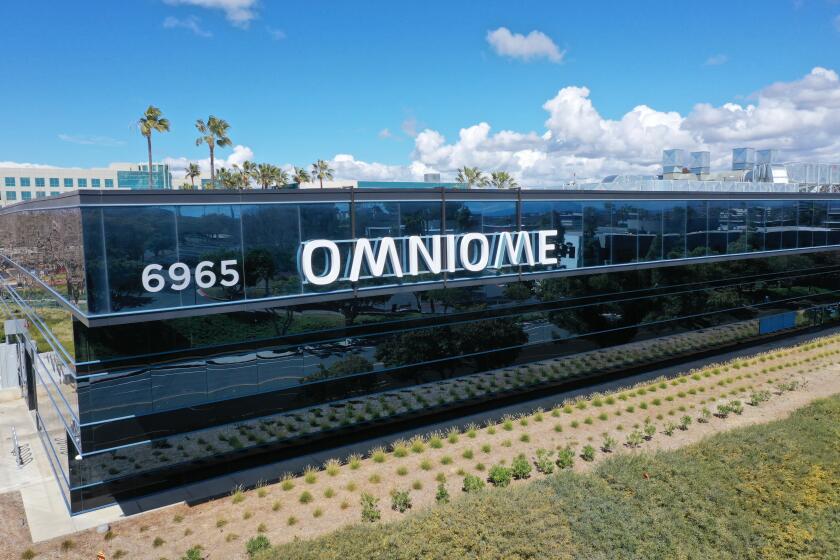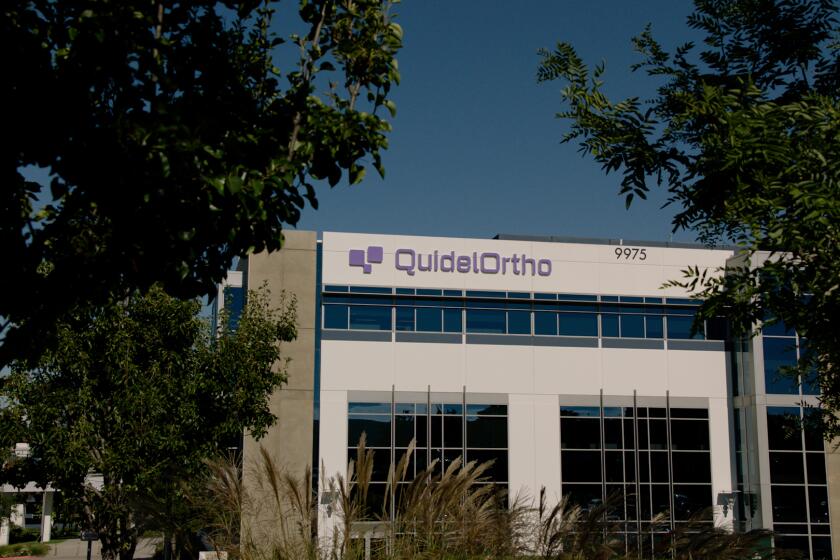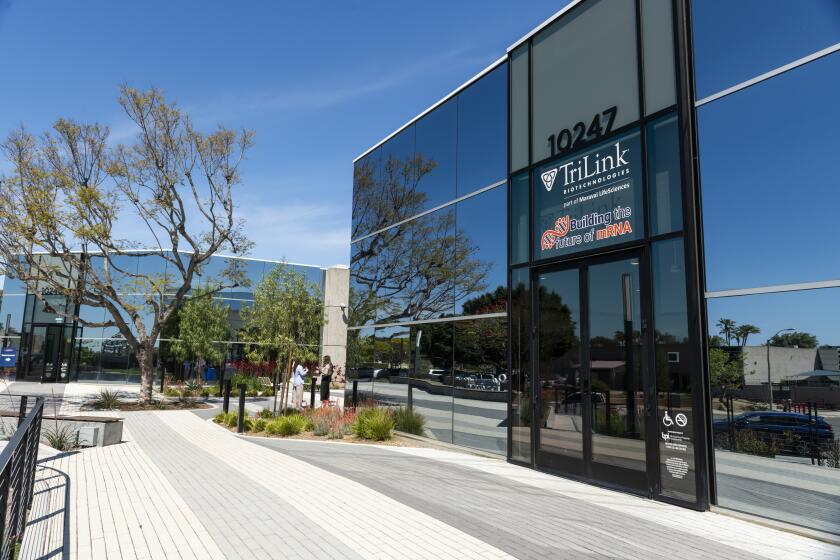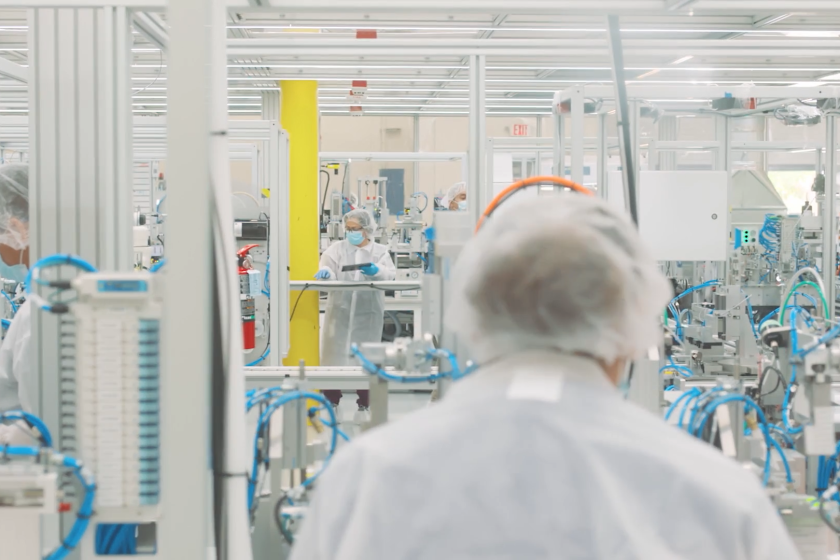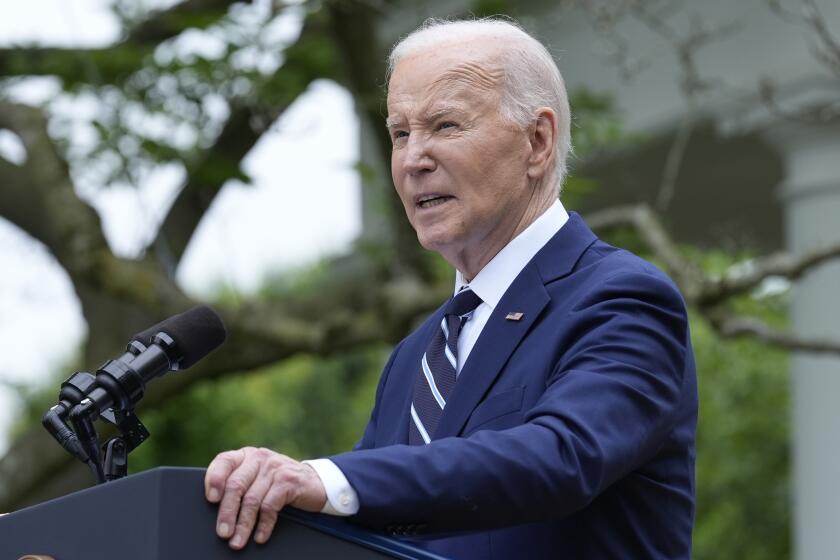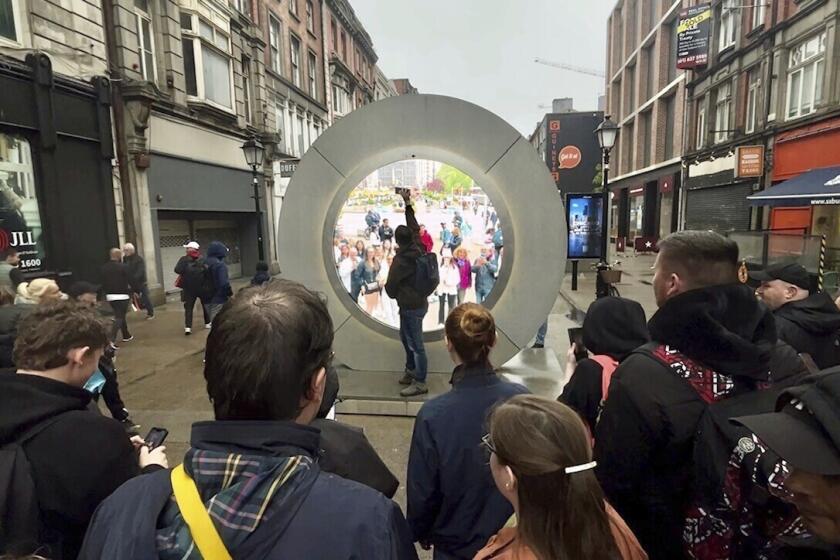This biotech startup got the biggest venture capital deal in San Diego so far this year
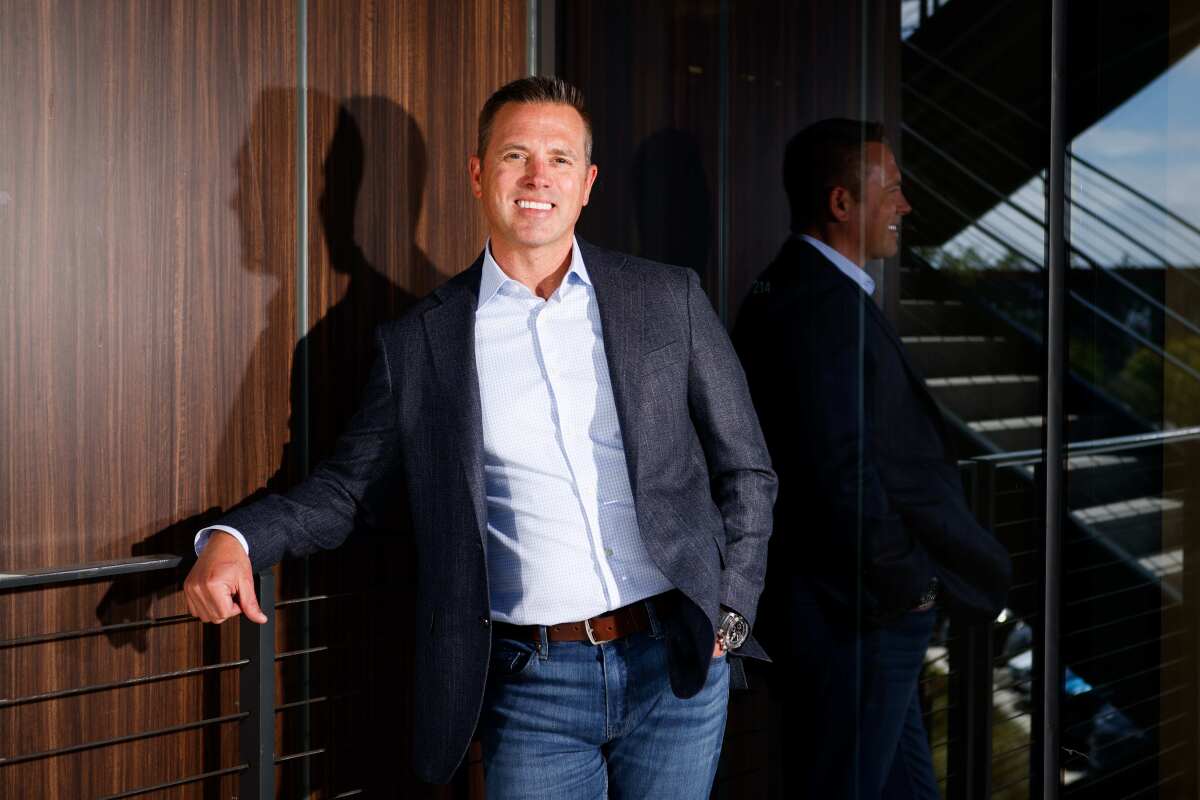
San Diego had fewer startup deals in the first quarter of this year. Health care startups led deal making.
Funding deals for San Diego startups got off to a slow start this year, but a few local biotechs still notched some impressive investment dollars.
San Diego County recorded 55 venture capital deals totaling $1.57 billion in the first quarter ending March 31, according to PitchBook, an industry research firm, and the National Venture Capital Association. Deals were down 26 percent compared to the same time last year. But the total value raised was almost double last year’s $788 million.
This story is for subscribers
We offer subscribers exclusive access to our best journalism.
Thank you for your support.
This was San Diego’s lowest number of first-quarter deals going back 10 years. At the same time, the $1.57 billion was the most deal value generated during the first quarter in the past decade — excluding the outlier of 2021, which recorded $3.26 billion. (The first quarter of 2021 was also San Diego’s single best performing quarter with 139 deals).
Local life science companies led the pack by scoring big deals, including one of San Diego’s newest firms, Mirador Therapeutics.
A team of veteran life science leaders launched the local biotech in March with $400 million. It was San Diego’s top deal and the third largest in California during the first quarter.
The Torrey Pines-based biotech is helmed by Mark C. McKenna, who joined forces with former leaders of Prometheus Biosciences. They decided to launch Mirador less than a year after Prometheus, a local firm focused on treatments for Crohn’s disease and ulcerative colitis, was acquired by Merck for $10.8 billion.
Now, they’re looking for targeted medicines to treat the source of inflammatory diseases. This could include chronic conditions such as inflammatory bowel disease, and other gastrointestinal, lung and skin issues.
One of their big differentiators is leveraging artificial intelligence to discover and develop drugs using large data sets. The goal is to bring drug development costs down and make medicines work for more patients.
For example, McKenna said Humira, a multibillion-dollar drug for rheumatoid arthritis and Crohn’s disease, is only effective for about 10 to 15 percent of patients. Mirador wants to home in on those subsets of patients who aren’t being treated by available drugs coming from big pharmaceutical companies.
“How drug development is going to be done in the future is a more precise approach where we’re actually developing drugs for specific patient needs,” he said. “It’s a little bit different than a trial and error, one-size-fits-all (approach).”
Fundraising wasn’t a huge challenge for Mirador — the team quadrupled their initial fundraising goal. McKenna said investors aren’t spreading their bets like they were in 2021. Instead, life science investors are concentrating on companies backed by solid science and executives.
“While we’ve seen some breaking in the clouds with regards to the capital markets in both private and public settings, we’re far from out of the woods,” McKenna said.
Nationally, there was $36.6 billion invested in companies via 3,925 deals during the first quarter. The number of deals is down from the same period last year and total deal value is at its lowest level since 2018.
While the past year has been characterized by high interest rates and stifled deal activity nationwide, there is still more than $300 billion in “dry powder” on the sidelines waiting to be invested.
“This year began on the same note that 2023 ended,” said Bobby Franklin, president and CEO at National Venture Capital Association. “Dealmaking and exits are softer and slower than we’d typically like, but there is an abundance of dry powder and optimism in various sectors, including AI, that signal room for growth in the year ahead.”
While it’s not ideal that San Diego is recording fewer deals, Mike Krenn, head of Connect/San Diego Venture Group, said the larger deal values are a sign of the region’s growth. He looks at San Diego’s performance in the long term and said the region is better off than it was five years ago.
“That said, we want to see the number of deals go up, too,” Krenn said. “That’s the pipeline. We’re working hard on that front.”
The organization he leads has worked to change that by creating opportunities for more money to flow into the region’s innovation economy. For instance, next week, Connect is hosting a private event that will bring 118 venture capitalists to meet with 30 San Diego startups.
San Diego’s rise in the venture capital scene is also evident in PitchBook’s latest ranking of the world’s top startup cities. PitchBook ranked San Diego 15 out of 50 global cities, based on the size and maturity of its startup network.
Notably, San Diego County has 41 resident venture capital firms based here. That’s far fewer resident firms — by hundreds — than other U.S. metropolitan areas on this list.
“Finding early stage capital remains a challenge in San Diego,” Krenn said. “The number of funds here relative to other markets bear that data point out. Sometimes it feels like our startups need to work a little harder to get those early rounds — but we’re still getting it done comparative to those other markets.”
Those deals are being led by the region’s world-renowned life science sector. San Diego’s top five deals during the first quarter were all by health care startups.

The next biggest deals after Mirador included Avenzo Therapeutics bringing in $223.4 million; Capstan Therapeutics with $175 million; Engrail Therapeutics with $157 million; and Mainstay Medical with $125 million.
The top three fund-getters of the quarter were led by companies with established life science leaders who have a track record of growing successful biotechs.
It’s no surprise to Court Turner, partner at LYZZ Capital, a local life science venture capital firm, that San Diego’s top deals were all among veteran leaders. Investors have spent the difficult fundraising period of the past year re-evaluating their portfolio companies and how to prioritize the cash they have on hand.
This tracks with national trends where investors are shoring up their most promising companies before jumping into new ventures.
Of course, biotechs require more capital and time to get through research and development or clinical trials compared to what is required for a traditional tech or consumer product startup. So, Turner said asking a “superstar” biotech founder what’s next is the obvious question.
“Those are easier conversations I think to have in a tough time versus let’s hear 50 pitches and then try to weed through these 50 unknowns and develop a thesis to make an investment,” Turner said.
San Diego also saw two companies debut on the public market — a meager number for the first quarter but a bright spot in an otherwise quiet IPO market.
Boundless Bio, a local clinical-stage oncology company, raised $100 million during its initial public offering. Local biopharmaceutical firm Contineum Therapeutics also went public, raising roughly $110 million on April 5.
Turner said “deals are taking a little bit longer than before,” but he’s optimistic that dealmaking will pick up this year based on institutional investors and wealthy private investors who are paying attention to San Diego’s innovative ecosystem.
“I do think the IPO window will crack open,” Turner said. “And I think the companies that are at clinical stage and are able to show positive phase two data will get rewarded by the market.”
Get U-T Business in your inbox on Mondays
Get ready for your week with the week’s top business stories from San Diego and California, in your inbox Monday mornings.
You may occasionally receive promotional content from the San Diego Union-Tribune.

